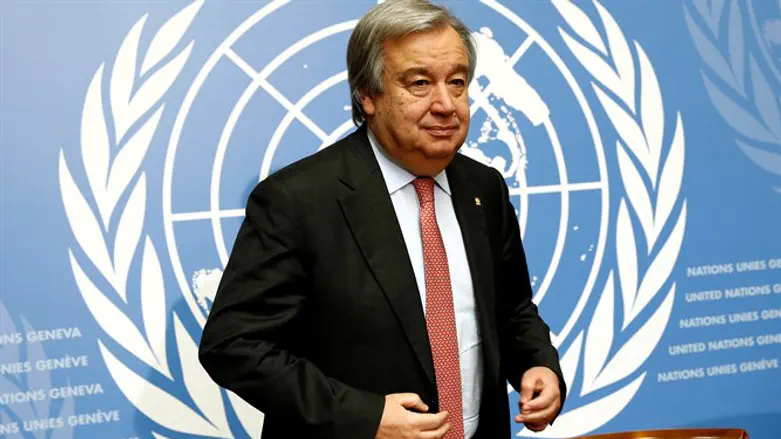
UN Secretary-General Antonio Guterres on Saturday defended his choice of former Palestinian Authority leader Salam Fayyad to be the UN peace envoy to Libya, after the United States blocked the appointment.
Guterres nominated Fayyad to the post on Wednesday and the Security Council had been expected to approve his appointment without objections.
But late on Friday, U.S. Ambassador Nikki Haley announced she was blocking the appointment, explaining that "for too long, the UN has been unfairly biased in favor of the Palestinian Authority to the detriment of our allies in Israel."
UN spokesman Stephane Dujarric explained on Saturday that the decision to put forward Fayyad’s candidacy "was solely based on Mr. Fayyad's recognized personal qualities and his competence for that position."
"United Nations staff serve strictly in their personal capacity. They do not represent any government or country," he added.
Dujarric further said that no Israeli and no Palestinian Arab had served in a high-level post at the United Nations, and that "this is a situation that the secretary-general feels should be corrected," based on personal merit and competencies of the candidates.
Israel's Ambassador to the UN, Danny Danon, welcomed the move to block Fayyad’s nomination, saying on Saturday, "The new Administration proved once again that it stands firmly alongside the State of Israel in the international arena and in the UN in particular. The new administration is working towards the joint interest of the United States, Israel and the special alliance between our two nations.”
"This is the beginning of a new era at the UN, an era where the US stands firmly behind Israel against any and all attempts to harm the Jewish State," Danon concluded.
The Palestine Liberation Organization (PLO), however, condemned Washington’s move as "blatant discrimination".
"Blocking the appointment of Dr. Salam Fayyad is a case of blatant discrimination on the basis of national identity," claimed the PLO’s Hanan Ashrawi.
The U.S. decision to block Fayyad’s appointment surprised Guterres, Dujarric acknowledged.
"Based on the information available to him at the time, the secretary-general had the perception, now proven wrong, that the proposal would be acceptable to Security Council members," he told AFP.
Fayyad, 64, headed the PA government from 2007 to 2013 before being forced to resign after months of tension with PA chairman Mahmoud Abbas.
Fayyad was often touted as a moderate and was hailed as a “strong partner” by the U.S. and Canada, even though he had called to free all PA Arabs imprisoned in Israel, despite the fact that many are serving time for terror-related offenses, including murder and attempted murder.
